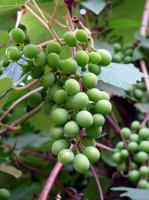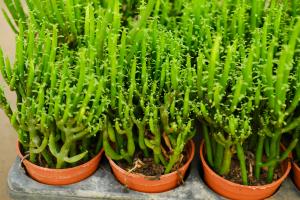Can You Use Tap Water on Plants?
Water is essential for the growth and survival of all plants, and it's important to make sure you're giving your plants the right kind of water. If you're wondering whether or not you can use tap water on your plants, the answer is yes, but with some caveats.
The Pros of Using Tap Water on Plants
One of the main benefits of using tap water on plants is that it's cheap and readily available. If you have a garden or a large number of houseplants, buying bottled or filtered water can get expensive, so tap water can be a convenient and cost-effective solution.
Another benefit of using tap water on plants is that it often contains essential minerals that are beneficial for plant growth. For example, tap water typically contains calcium, magnesium, and potassium, which are all essential nutrients that plants need to thrive.
The Cons of Using Tap Water on Plants
Although tap water can be beneficial for plants, there are also some potential downsides to consider. One of the biggest concerns is that tap water can contain high levels of chlorine, which can be harmful to plants, especially if it's not allowed to dissipate before watering.
In addition to chlorine, tap water may also contain other chemicals, such as fluoride and heavy metals, that can be harmful to plants in high concentrations. These contaminants can build up in the soil over time and cause damage to the plant's roots and overall health.
How to Use Tap Water on Plants
If you decide to use tap water on your plants, there are a few steps you can take to make sure it's as safe and beneficial as possible. First, you should let the water sit for at least 24 hours before watering your plants. This allows the chlorine to evaporate and the water to reach room temperature, which can help prevent shock to the plants.
You can also consider using a filter or a water conditioner to remove some of the contaminants from the water. These products can be found at most gardening centers or online and can help make tap water safer for your plants.
Alternatives to Tap Water
If you're still concerned about the quality of your tap water or you want to give your plants the best possible care, there are other options available. One popular alternative is to collect rainwater and use it to water your plants. Rainwater is free from the chemicals and minerals found in tap water, so it can be a great way to ensure your plants are getting the purest water possible.
You can also use distilled water or bottled water to water your plants, although these options can be more expensive and may not contain the same beneficial minerals as tap water.
Conclusion
So, can you use tap water on plants? The answer is yes, but with some precautions. While tap water can be convenient and affordable, it can also contain harmful chemicals that can damage your plants over time. By following some simple steps, such as letting the water sit before watering and using a filter or conditioner, you can help make tap water safer and more beneficial for your plants. However, if you're still concerned about the quality of your tap water, you can always explore alternatives like rainwater or distilled water to ensure your plants are getting the best possible care.

 how many times do yo...
how many times do yo... how many planted tre...
how many planted tre... how many pine trees ...
how many pine trees ... how many pecan trees...
how many pecan trees... how many plants comp...
how many plants comp... how many plants can ...
how many plants can ... how many plants and ...
how many plants and ... how many pepper plan...
how many pepper plan...






























